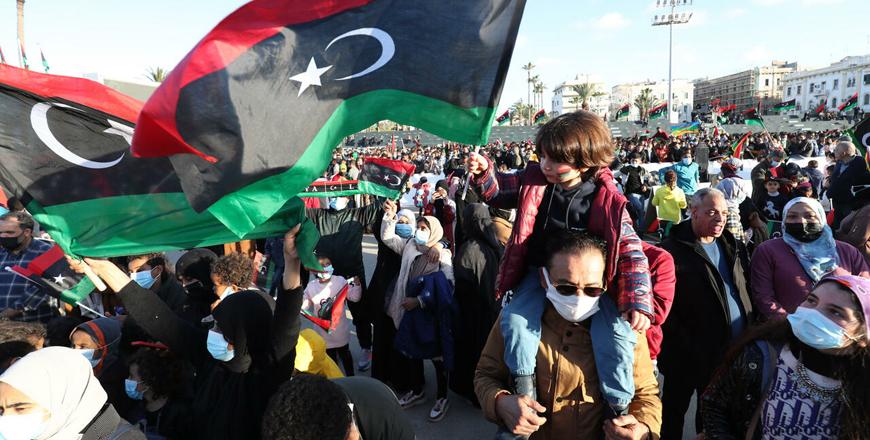You are here
Libya parliament withdraws confidence from unity gov’t
By AFP - Sep 21,2021 - Last updated at Sep 21,2021
TRIPOLI — Libya's eastern-based parliament on Tuesday passed a no-confidence vote in the country's unity government, in a new blow to UN-backed peace efforts.
Eighty-nine of the 113 MPs present in the eastern city of Tobruk voted to withdraw confidence from the Tripoli-based administration of interim Prime MinisterAbdulhamid Dbeibah, a spokesman said.
The escalation came amid growing tensions between Dbeibah's Tripoli-based administration and the House of Representatives in the east, three months ahead of planned national elections.
Speaker Aguila Saleh earlier this month ratified an electoral law seen as bypassing due process and favouring eastern-based military strongman Khalifa Haftar.
The High Council of State (HCS), the parliament's upper house in Tripoli, had rejected that legislation on Monday.
The law had been passed "without a legal vote or consensus", the HCS said, calling for presidential elections to be postponed for a year.
The council also reacted quickly to Tuesday's vote.
"The HCS rejects the no-confidence measure against the national unity government," a spokesman said, adding that the vote contravened an agreement signed in the Moroccan town of Skheirat in 2015.
Dbeibah's transitional administration took office in February with a mandate to guide the North African country to elections on December 24, part of a United Nations-led process aimed at ending a decade of violence following the fall of dictator Muammar Qadhafi.
That came after an October ceasefire between western Libyan forces and Haftar, who had waged a year-long assault on the capital that left thousands dead.
Critics of Saleh's move have pointed to a clause stipulating that military officials may stand in presidential polls on condition they withdraw from their posts three months beforehand.
That would allow for a presidential run by Haftar, whose forces control eastern Libya, where the parliament is based, as well as parts of the south.
Mohamed Eljarh, a consultant at Libya Outlook, tweeted that Tuesday's no-confidence vote was "a major escalation" by the parliament "at this critical juncture" that would "add to the confusion and uncertainty" in Libya.
Meanwhile, French President Emmanuel Macron will host an international conference on Libya on November 12, a month ahead of elections that aim to put an end to a decade of civil war but that look increasingly uncertain.
"In view of the December elections, France will organise, around the President of the Republic, an international conference on Libya on November 12," said French Foreign Minister Jean-Yves Le Drian, during a press conference on the sidelines of the UN General Assembly.
Le Drian and his German and Italian counterparts, Heiko Maas and Luigi Di Maio, will also co-chair a meeting devoted to Libya on Wednesday in New York.
Related Articles
TRIPOLI — A key state body in Libya accused the government of prime minister Abdulhamid Dbeibah on Monday of preventing it from meeting, rev
TRIPOLI — A key state body in Libya accused the government of prime minister Abdulhamid Dbeibah on Monday of preventing it from meeting, rev
TRIPOLI — The United Nations' top official in conflict-scarred Libya offered on Friday to mediate between political rivals in a renewed push












